What I Learned After Failing, Restarting, and Building Games Again
How I turned frustration into progress through discipline, limitations, and small wins
After a decade working under an IT department as technician and later on management — I can tell you one fact, there is so much I’ve learned but there is also a lot to be learned.
You can apply this lesson to any area and role. Now heading back to Game Development…
You can watch thousand Youtube videos
You can read hundreds of books
You can listen dozens of podcast
You can read some of my Gamedevpills posts :)
But still you don’t know how to do real… gamedev, right? believe me… We are all on the same boat. So what’s next?
After so many iterations I did on my side, I just wanted to save you time, providing a set of principles I’ve applied to myself to learn through the process and make me feel under control of my learning and progress.
Remember, uncertain and frustration are just waiting for you to kill your project as soon as there is no progress happening.
Note that my milestone is not to release a succesful game, my milestone is to apply both my technical and communication, management, accountability (Well known as soft skills) through the process to growth and create prototypes, systems and ultimately games faster, better and stronger.
*milestone is the next step on your journey, which should be smaller and different than your ultimate goal
Let me introduce you to:
My journey
Learnings
Journey
Phase 1: Art/Drawing impulse
I started thinking on Gamedev through Art to be more specific from here → https://drawabox.com/lesson/1 - I thought it would be a basic skill for gamedev and indeed it was for me.
I did some of the lessons and understood shapes and their ways of drawing, but then I quickly switched to Pixel Art
I started uploading my art on Lospec to obtain feedback and see other creations around
I participated on Pixel Art Jams to prove myself - I was happy as my expectations were just creating things to learn, not hundreds of likes.
I always stayed with Aseprite as my tool since I started and that was the best decision I had.
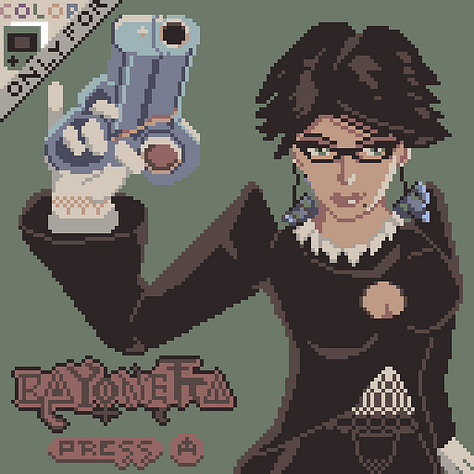
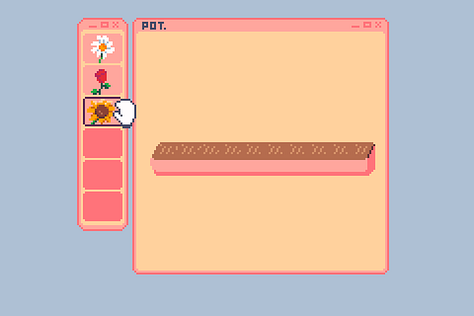
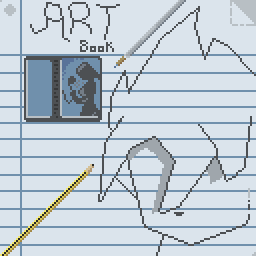
Phase 2: Understanding the tools and engines.
There is an overwhelming noise on Youtube and internet in general about the different engines (Godot, Libgdx, Gamemaker, Phaser…) jumping from one to another was my habit when I started, a mistake.
At least I learnt most of them follows a similar structure. Init, update and draw functions.
Everytime I switched between them I stopped whatever system, project or idea I was working on. Lesson learnt
Phase 3: Solo Game Jam (GMTK 2022)
As almost every hobbyst gamedev you start with unity, unreal or lately godot. I’ve used Godot at this project.
I had 72-hours to deliver something, from end to end it should be working, including a small menu, settings and of course the videogame itself
I learnt a lot through the process and when I felt stuck, I walked outside of my apartment to have some fresh air and unlock my potential
I delivered the game, it was working and I received good feedback for being my first attempt, you can see a short video after this line
What a bad gameplay, just a reflection of being a gamedev hobbyst 😅
Phase 4: Limit yourself and stick to the plan
This is actually where I started learning.
The same way we start crawling when we are a baby, we need to limit the tools we use during the process, it boost creativity and force small scope.
Write down your idea, in the format you need, paper, screenshots, trello, miro, figma. Wherever you need, but do it.
Measure your milestones. If you are working on the aspect of a tile or at the movement of your character don’t do things randomly or on a generic way…that’s your Game Feel value. Mark it as done when you are happy with the result.
Learning
1. Choose your engine
For newcomers or even for those that already did some game jams already, I would say this should be the first step.
Why is the first step?
As I mentioned through my journey, jumping from one engine to another doesn’t keep me actually commited to what I’m doing and learning. I decided to stick with PICO-8 for many reasons:
Is the best scenario to learn the fundamentals through limitations
Is worth the price
You can edit your games outside the tiny editor on Visual Code or whatever editor you are used to.
Is super fast for prototyping and systems, that’s my biggest win with PICO-8
I declare myself a fan of Johan Peitz who has been lately relasing amazing games on PICO-8 System.
I stick to my Favourite engines:
Pico-8
Godot
This is the shield against scope creep.
2. Break it down, no, again.
Small pieces of work comes with success, saying that you want to create a 2D Platform game, even with a minimalistic art, that scope include so many things.
Physics system, movement, score, health counter… even if you just want to implement a physics system as prototype, you can set that as your milestone, break it down; weight, air force, collisions and do it again :)
Outcomes
You can quickly feel you are making progress
Your perception of control increases
Coming back to your project after few days or even weeks is way easier
This is the spelling of discipline.
3. Prototype more, think less
Whatever is the size of your idea, I already guided you to break it down into an actual plan on one of my post
Before you can start thinking on the thematic, design, you need to test and confirm the core loop and the main hook of your game (what makes it different from the rest) actually works.
Create prototypes with just 16x16 blue squares
Work on the core loop gameplay
What players do when they play?
What players fight against? Maybe enemies, obstacles, time counter?
What drives players to continue playing? Some kind of progression, leveling, reward system.
This is the sword of learning.
4. Deliver as soon as possible
None of the points I’ve mentioned before are valid until you publish your small game. Even being a demo or just a vertical slice, it should be done.
At the end it is a materialized version of the reflections, learning and lessons we’ve been through during this journey.
It is scary, none of us want to fail creating something and being exposed out there, but it should be done. Learning comes with real experiences, mistakes are the steps right before success.
If you are shy and you wan’t to avoid steam by now, here a list (that I prepared for myself) with alternatives
This is the gate to masterize.
Last words
Hopefully this advice is as useful as it has been for me, I’m not a real gamedev, I’ve never been. But I truly believe there is always a common approach to whatever personal goal we set on our life.
If you enjoyed this post don’t forget to share with your fellow gamedev circle!
Thank you for reading.



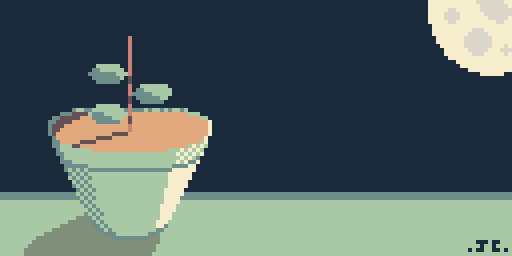

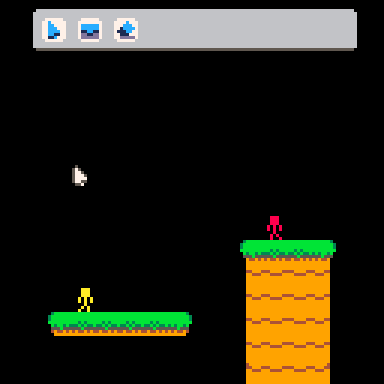
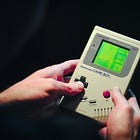
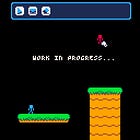
Excellent article!
I have to admit, as much as I love it, I also have a problem with it. I might've fallen into the trap of "investment". My problem is not the lack of programming skills. I've been programming stuff since forever, professionally since 2008. Maybe this is why I pick tools that should serve me in the long term.
Pico-8 is great and all, but I don't want to do Pico-8 games forever. I am afraid of the switch to the next technology. Of limitations that will force me to change my toolkit when I want to go further. So I pick something higher-level. And since I go with frameworks rather than engines, I'm trying to make myself a template for my next games while making tutorials and smaller things.
Damn, so many challenges ;-)
PS. I think the title of the second table is incorrect ;-)